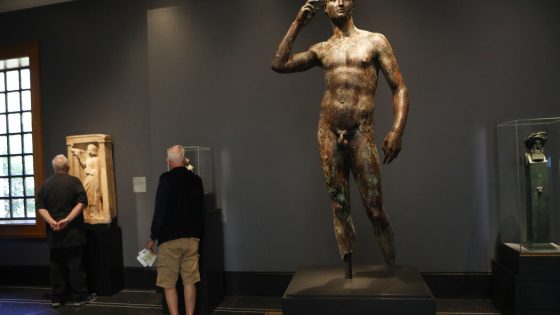The court is a tribunal of the Council of Europe and rules on cases where there are accusations that civil or political rights have been violated by member states who have agreed to accept its jurisdiction. Thursday’s judgment was given by seven judges from various countries.
In the ruling, the court found that no violation by Italy had occurred.
“It couldn’t have gone any other way,” said Lorenzo D’Ascia, a lawyer for the Italian government involved in the case. He noted that the European court had affirmed that there was international consensus about the need to protect cultural artifacts from looting. The ruling also upheld the legitimacy of confiscating illicitly gotten works and returning them to their country of origin. “It’s an important ruling,” he said.
The relationship between the Getty and Italian culture officials has long been fraught.
Marion True, a Getty curator who with another curator, Jiri Frel, had helped to build one of the top collections of ancient art in the United States, was put on trial in Rome in 2005, accused of receiving artifacts stolen from Italy and conspiring to deal in them. The case against True ended abruptly in 2010, after a court ruled that the statute of limitations on her alleged crimes had expired.
While the case was in court, Italy began negotiating with the Getty for the return of some of the works it identified as looted. The talks were contentious, and at one point stalled because of the statue.
A first accord with the museum was reached in September 2007, when the Getty agreed to return 40 antiquities claimed by Italy, though the statue was excluded from the negotiations. Since then, the Getty has returned numerous artifacts claimed by Italy, including three terra-cotta figures depicting “Orpheus and the Sirens,” dating to around 300 B.C. that caused a stir in Italy when they were returned two years ago.
Thursday’s ruling was a so-called chamber judgment and not final. Either party has three months to request that the case be referred to the Grand Chamber of the European court to consider whether it deserved further examination. “But the cases where they pass to the Grand Chamber are rare,” said D’Ascia, the lawyer. The Getty said Thursday that it was “carefully considering the possibility of requesting a review before the Grand Chamber.”
Source Agencies



